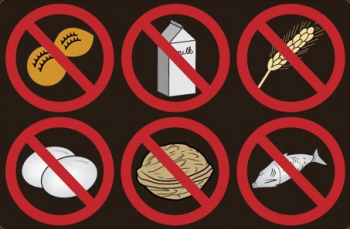Archive by Author
Exploring Israel: Netanya Posted by Sean Young on Nov 28, 2013
Netanya (Hebrew: נְתַנְיָה, lit., “gift of God”) is a city in the Northern Central District of Israel. It is located 30 km north of Tel Aviv, and 56 km south of Haifa. Netanya was named in honor of Nathan Straus, a prominent Jewish American merchant and philanthropist in the early twentieth century. According to the…
Real World Hebrew: Health Risks of Smoking Posted by Sean Young on Nov 19, 2013
In this article, we’ll be looking at some warning labels about health issues, specifically about smoking. The one word you see here is the big red one – אַזהָרָה– Warning! עשן הסיגריות פוגע בבריאות ילדיך וכל הסובבים אורחןCigarette smoke harms your child’s health and all those around. עָשָׁן– smoke סִיגַרִיָה– cigarette פּוֹגֵעַ– offensive, harmful, injurious…
Verbs in action: Love my work Posted by Sean Young on Nov 12, 2013
Let’s talk about your job. What do you do? Do you like it? Hate it? Either way, let’s take a look at what to say to express your thoughts. to work – לְעְבוֹד עוֹבְדוֹת עוֹבְדִים עוֹבֶדֶת עוֹבֵד fem. pl. masc. pl. fem. sing. masc. sing. First, here’s some vocabulary when talking about your job. work…
Exploring Israel: The Temple Mount Posted by Sean Young on Nov 6, 2013
The Temple Mount, (הַר הַבַּיִת) is one of the most important religious sites in the Old City of Jerusalem for thousands of years. At least four religions are known to have used the Temple Mount: Judaism, Christianity, Roman religion, and Islam. the first temple was built by Solomon in 957 BCE and destroyed by…
Building Your Vocabulary: Eating Out (2) Posted by Sean Young on Oct 30, 2013
At the restaurant, cafe, or snack bar, wherever you go to eat or have a snack, you may have some dietary restrictions to keep in mind. Some are voluntary, others may be for health reasons. So you need to be prepared with the following phrases – just in case you need them. Eating kosher or…
Building Your Vocabulary: Eating Out (1) Posted by Sean Young on Oct 26, 2013
We’re going to visit the restaurant again, but this time, let’s build up our vocabulary and phrases so we can enjoy the experience better. Arriving at the restaurant A table for two? – שׁוּלְחָן לִשְׁנַיִים? A table for five, please – שׁולחן לחמישה, בבקשה. Looking over the menu May I have a menu? – אֶפְשָׁר…
Insight into Hebrew: Shibboleth Posted by Sean Young on Oct 24, 2013
The term originates from the Hebrew word שִׁבֹּלֶת (shee-BOH-let), which literally means the part of a plant containing grains (an ear of corn or a stalk of grain). The modern usage derives from an account in the Hebrew Bible, in which pronunciation of this word was used to distinguish Ephraimites, whose dialect lacked a “sh”…







